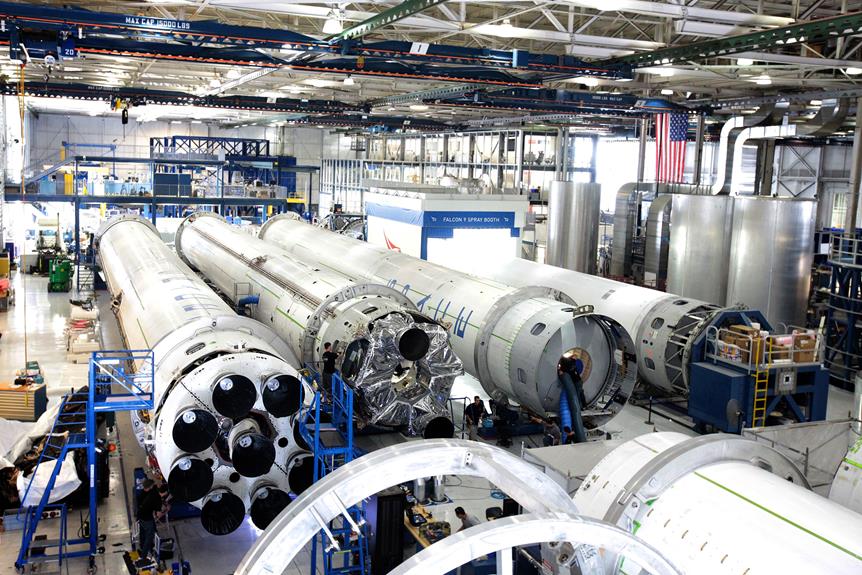Fuel cells are like the bright stars of the energy world, promising a clean and efficient future. You may have heard of them, but do you know the advantages and drawbacks of this revolutionary technology?
In this article, we'll explore the potential of fuel cells and the cost and applications of this incredible energy source. Join us as we take a closer look at the good, the bad, and the exciting of fuel cells.
Overview of Fuel Cells
You're getting an overview of fuel cells, so let's dive right in!
Fuel cells are a renewable source of energy that create electricity through a chemical reaction, which reduces pollution associated with traditional energy sources.
Fuel cells are efficient, cost-effective and can be used in a variety of applications. They also offer the potential to reduce greenhouse gas emissions and create a cleaner environment.
Fuel cells have both advantages and disadvantages, so it's important to understand both before making a decision.
Benefits of Fuel Cells
You can benefit from using fuel cells, as they're an efficient, cost-effective, and renewable source of energy. They offer numerous advantages, including zero carbon emissions, low noise levels, and minimal environmental impact.
Moreover, fuel cells are an energy efficient source of power, as they can provide long-term, reliable electricity. Additionally, they require no combustion and don't produce hazardous waste, making them a safe, clean source of energy.
All in all, fuel cells are an attractive option for those looking to reduce their environmental impact and energy costs.
Drawbacks of Fuel Cells
Despite their many benefits, fuel cells come with some drawbacks, such as their high cost and limited availability.
One of the major issues is their limited durability, as they need frequent maintenance and repairs.
Moreover, fuel cells aren't suitable for energy storage, making them difficult to use as a backup power source.
Additionally, fuel cells require a constant supply of clean and pure fuel, which can be challenging to find in certain areas.
These drawbacks may limit their use in certain applications.
Cost of Fuel Cells
Your cost of fuel cells is greatly impacted by the maintenance and repairs required. Fuel cell efficiency is key in reducing the cost, since they're more expensive to build and operate than traditional energy sources.
Infrastructure also shapes the overall cost of fuel cells, as the materials used and access to the necessary components for fuel cell operation can be costly.
Investing in fuel cells can be beneficial in the long run, however, as the savings on fuel costs may more than offset the initial costs.
Applications of Fuel Cells
Fuel cells can be used in a variety of applications, from powering homes to providing electricity for vehicles. They're a renewable energy source that can reduce pollution, making them an effective alternative to traditional fossil fuels.
With fuel cells, energy can be produced efficiently and with little waste. In addition, fuel cells have low carbon emissions and can provide power even in remote locations.
Fuel cells are becoming increasingly popular for powering homes, businesses, and even vehicles, making them a viable option for many people.
Frequently Asked Questions
Are Fuel Cells Better for the Environment Than Traditional Energy Sources?
Yes, fuel cells are more cost effective and have less environmental impacts than traditional energy sources. They are a great option for those seeking liberation from costly, polluting energy sources.
What Safety Precautions Should Be Taken When Using Fuel Cells?
"When using fuel cells, it's important to be mindful of power usage and fuel storage. Keep a watchful eye to ensure safety. Don't let the power of the cells catch you off guard. Be proactive and take the necessary steps to maintain a secure environment. Embrace the opportunity to enjoy the liberation that fuel cells offer while being mindful of safety."
How Long Does It Take to Install a Fuel Cell System?
The cost and maintenance requirements of installing a fuel cell system vary, but on average it takes around 4-6 weeks. Make sure to consider these factors when deciding to install one.
Are Fuel Cells Suitable for Use in Remote Locations?
You're considering a fuel cell system for a remote location, but are wondering if it's suitable? Cost implications and operational complexity aside, fuel cells can offer a liberating solution, offering reliable power for remote locations. With careful planning, fuel cells can be an excellent choice for reliable energy in any tough environment.
Are There Any State or Federal Incentives for Purchasing Fuel Cells?
Yes! Many states and the federal government offer incentives to reduce the cost of fuel cell purchases and promote energy efficiency. Check out your local government and the US Department of Energy for more info.
Conclusion
Fuel cells are a powerful, efficient source of energy with a wide range of potential applications. While they have a high up-front cost, they offer a number of advantages that could make them worthwhile for many users.
Interestingly, fuel cells can produce energy with up to 80% efficiency, making them a great choice for those looking to reduce their environmental impact.

